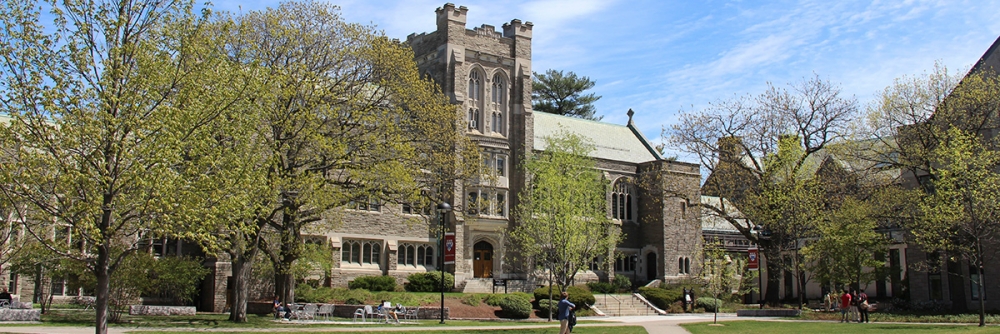
The Christian Century (February 15) reports that mainline seminaries are increasingly partnering with megachurches for financial reasons as well as to draw on their expertise in evangelism, church growth, and leadership. Residential-based seminary education, with its high tuitions and other living expenses, has increasingly been falling out of favor with seminarians and potential clergy, who are opting for online and distance learning programs that they complete without leaving their homes and careers. Mainline seminaries’ continuing financial problems due to low enrollment and the resulting difficulties in maintaining old buildings are other factors that have moved megachurches into the theological education field. Those seminaries that have shown some resilience are the ones that have teamed up with larger churches to deliver their educational services, writes Jason Byassee and Ross Lockhart. Saint Paul’s School of Theology in Kansas City was forced to close its campus in the center of the city and start holding its classes in the 20,000-member Church of the Resurrection in the suburbs.
This United Methodist megachurch provides the school with practicums that offer “nuts-and-bolts topics like funerals, stewardship, and youth ministry.” There is some tension in the fact that Saint Paul’s is more liberal in theology and oriented more toward social action than the centrist evangelical megachurch. Asbury Theological Seminary in Kentucky is another example of this trend, though in this case the unaffiliated (and more evangelical) school in the Wesleyan tradition has “planted” a satellite seminary in another United Methodist megachurch in Memphis, Tennessee. The new campus makes little effort to offer on-campus formation, instead drawing on the congregation’s extensive ministry in downtown Memphis. St. Mellitus College has pioneered a similar kind of partnership in the U.K. The seminary, with about 400 students, was the result of a merger between two diocesan theological programs associated with the evangelical “megaparish” Holy Trinity in Brompton and St. Jude’s Church in the west of London.

Jehovah’s Witnesses’ low levels of education compared to other religions has affected members’ job prospects and led to a high rate of underemployment, according to a report on National Public Radio (February 19). The report cites Pew Research figures showing that only 9 percent of Jehovah’s Witnesses get an undergraduate degree, well below the national […]
In late February Metropolitan Hilarion, Primate of the Russian Orthodox Church Outside of Russia (ROCOR, which is part of the Moscow Patriarchate since 2007) ordained as an Orthodox priest Sam Seamans, a former bishop in the Anglican Church in North America (ACNA), reports Fr. Victor Novak on his blog (March 3). Along with his parish […]
Americans hold warmer feelings towards various religious groups than they did just a few years ago, according to a new Pew Research Center survey. Atheists and Muslims still registered less favorable responses as measured by a “feelings thermometer” ranging from zero to 100. But warmth of Americans’ feelings toward these two groups has increased from […]
Since January 1st, the Lutheran Church in Norway is no longer a state church, and its 1,250 bishops and ministers are no longer being paid by public funds. Separation had already become a reality in neighboring Sweden in 2000. According to French historian and sociologist Philippe Portier, interviewed by Bernadette Sauvaget in the French daily […]
States of Central Asia are using “traditional” or “official” Islam for both strengthening national identity and legitimizing authoritarian regimes. Moreover, structural and political problems are explained away by references to an “Islamist threat,” writes Mariya Y. Omelicheva (University of Kansas) in Religion & Gesellschaft in Ost und West (February). For most Kazakhs, Tadjiks, and Uzbeks, […]
A new genre of monumental statues of Hindu deities is proliferating across India and its diaspora, merging tourism with the new public role of Hinduism. In the journal Current Anthropology (February), Kajri Jain writes that these giant-sized statues have been increasingly appearing since the 1990s, aided by the growth of automobile use and tourism. The […]
The conflicts over religious freedom and evangelicals’ stance against LGBT rights in the U.S. are having global repercussions, most notably in South Korea, according to an article in the social science journal Society (January/February). Researchers Joe Phillips, Joseph Yi, and Gowoon Jung write that the debate about LGBT rights in Korea, which is at an […]
In their book on a new stream of charismatic groups and leaders, The Rise of Network Christianity (Oxford University Press, $29.95), Brad Christerson and Richard Flory find that the shift from movement to informal networks of cooperation has been a central factor in their growth. Unlike earlier movements, such as the Vineyard Fellowship, that attempt […]
ACT for America, a self-proclaimed national security advocacy organization, is now in the spotlight in the Trump era for its anti-Islamic activism. The organization, started a decade ago, has been in the news recently for its advocacy supporting the travel ban targeting several Muslim nations, but its wide ranging agenda on issues regarding Islam has […]